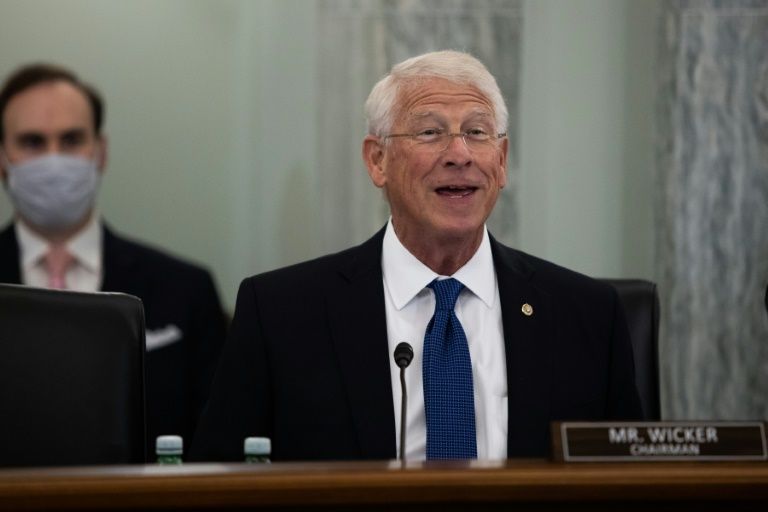US senators to quiz Big Tech CEOs on legal protections
Jack Dorsey of Twitter and Mark Zuckerberg of Facebook — summoned alongside Sundar Pichai of Google parent Alphabet — said proposed reforms could lead to more harmful and abusive content online, and would limit rather than expand free expression.
“Thanks to Section 230, people have the freedom to use the internet to express themselves,” Zuckerberg said.
“We believe in giving people a voice, even when that means defending the rights of people we disagree with.”
Dorsey said Section 230 gives online services flexibility to remove “hate speech” and other inappropriate content, and that the law underpins the social media world where anyone can post comments.
“Eroding the foundation of Section 230 could collapse how we communicate on the internet, leaving only a small number of giant and well-funded technology companies,” Dorsey added.
“We should also be mindful that undermining Section 230 will result in far more removal of online speech and impose severe limitations on our collective ability to address harmful content and protect people online.”
– ‘Objective reasonableness’ –
Yet a backlash against platforms is growing. Some political leaders and activists have argued that Section 230 is too lenient and enables the proliferation of abusive content and incitements to violence.
Republicans meanwhile claim the law gives platforms the right to unfairly suppress conservatives.
Republican Senator Roger Wicker, who chairs the panel, has introduced with colleagues one bill that would limit the immunity shield by requiring platforms to show “objective reasonableness” when they take down content.
“Big Tech companies have stretched their liability shield past its limits, and the national discourse now suffers because of it,” Senator Marsha Blackburn said in co-sponsoring the bill last month.
In addition to legislative efforts, President Donald Trump issued an executive order that would allow regulators to keep closer tabs on content moderation.
Digital rights activists say the attention on Section 230 is misguided, and that various measures would be unconstitutional or counterproductive.
“Section 230 is a crucial law that created the internet as we know it,” said Ashkhen Kazaryan, head of civil liberties at the activist nonprofit TechFreedom.
“Everyone relies on it from small blogs to big internet platforms.”
Critics of Big Tech have claimed that because they have enormous power over information, they are virtual monopolies which should be regulated.
– Heavy legal costs –
But Kazaryan said any new regulation would only strengthen the platforms by imposing heavy legal and administrative costs on newer players to the ecosystem.
“Only the big platforms can do this. The others are going to be sued out of business,” she said.
Defenders of Section 230 argue the law provides incentives for responsible content filtering, and that online services might need to block virtually all third-party content under some of the proposals, threatening the social media business model, or allow all content to remain.
Nonetheless, many analysts say reform of Section 230 is inevitable in light of the broad concerns about dominant online platforms.
“The fact this hearing is taking place in a Senate with a Republican majority is significant because it shows the interest in regulation goes beyond the Democratic party,” said Darrell West, head of the center for technology innovation at the Brookings Institution.
“A wide range of voices wants action and this hearing is putting the large platforms on notice that legislation may move next year. That especially would be the case if there is a Democratic President, House, and Senate.”
Disclaimer: Validity of the above story is for 7 Days from original date of publishing. Source: AFP.


